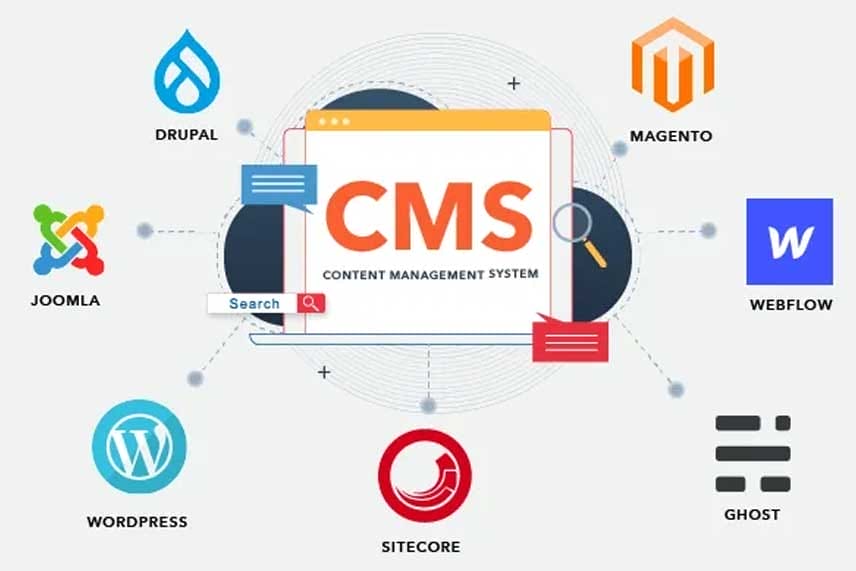- Address : P9FG+V4R, Shimutala, Matigara, Baniakhari
- /
- Email : splogos2022@gmail.com
- Home
- -Blogs Details
Blogs Details

- Sep 07,2024
- Admin
How to choose best CMS for Website Development
Choosing the best Content Management System (CMS) is a crucial step in building a successful website. A good CMS allows you to create, manage, and modify digital content without needing advanced technical skills. The ideal platform depends on your specific goals—whether you’re building a blog, business site, online store, or a custom web application.
WordPress is widely regarded as the best all-around CMS. It powers more than 40% of all websites globally and is known for its flexibility, ease of use, and a massive library of themes and plugins. It supports everything from small blogs to complex enterprise sites and is particularly strong in SEO, content management, and community support.
If you’re building an eCommerce website, Shopify is a leading choice. It’s designed specifically for online stores and comes with powerful tools for product management, payments, and shipping. It's user-friendly and highly secure, making it ideal for businesses focused on selling products online without dealing with the technical side of things.
Wix and Squarespace are popular for small businesses, creatives, and entrepreneurs who want visually stunning websites with minimal effort. These platforms offer intuitive drag-and-drop interfaces, built-in hosting, and beautifully designed templates. They’re best for users who prefer simplicity and don’t need deep customization.
Webflow has emerged as a top choice for designers and developers who want complete visual control without writing code. It combines CMS functionality with a powerful design system, allowing for the creation of fully custom, responsive websites. It’s perfect for agencies, creatives, and startups who need flexibility and professional polish.
For large-scale and complex websites, Drupal stands out. It’s powerful, secure, and highly customizable, making it suitable for government sites, educational institutions, and large corporations. It requires more technical expertise but delivers exceptional performance and scalability.
Joomla is another open-source CMS with a strong feature set. It offers more complexity than WordPress but less than Drupal, making it a good middle ground for users who want flexibility without a steep learning curve.
Ultimately, the best CMS depends on your technical skills, content needs, budget, and long-term goals. WordPress is the most versatile and widely supported option, while platforms like Shopify, Webflow, and Wix cater to more specific use cases like eCommerce and visual design. Choosing the right one sets the foundation for a successful and scalable online presence.




